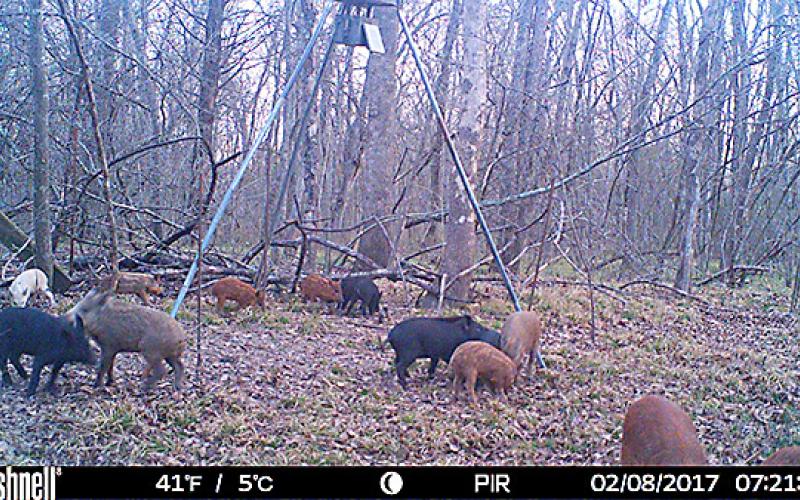Local stakeholders discuss feral hog bait
Late last month, the Texas Department of Agriculture announced it adopted emergency rules regarding the feral hog bait approved by the EPA January 3.
Kaput Feral Hog Bait, as it is known commercially, is intended to be used as a pesticide to control the ever-growing wild hog population.
But some in Jack County are concerned about the use of the pesticide.
A press release from the TDA states there are an estimated more than 200 million feral hogs in Texas responsible for cause $52 million of damage to agricultural enterprises each year.
“This solution is long overdue. Wild hogs have caused extensive damage to Texas lands and loss of income for many, many years,” TDA Commissioner Sid Miller said. “With the introduction of this first hog lure, the ‘Hog Apocalypse’ may finally be on the horizon.”
The active ingredient in the bait is Warfarin which is used as a blood thinner in humans and has been used as a rat poison for years.
According to the TDA website, hogs are extremely susceptible to Warfarin hog bait. Only 5 pounds or less will kill a hog. The website further reads the hog bait has little effect on almost all other animals including house pets like dogs.
“To be fatal, the average dog would have to consume 176 pounds in 1 day, or 13 pounds of bait daily for 5 days,” the TDA website reads.
It also states that after consuming the bait, a dye in it causes the fatty tissues inside the hog to turn visibly bright blue. A predator or scavenger that eats a baited hog has little risk of exposure because levels are too low to be toxic except under extreme circumstances. A Warfarin exposed hog carcass that is discovered in a water supply will not leach Warfarin into the water. It does not dissolve in water and is non-toxic to aquatic life.
A hog meat processing company has filed a lawsuit against the TDA concerning the emergency rules which require the pesticide be sold by a licensed pesticide dealer and applied by a licensed pesticide applicator, and a temporary restraining order was placed March 3 through a pending court date of March 30.
Jennifer Dorsett with TDA said Tuesday the order does not hinder the sale of the hog bait.
Locally, Jack County AgriLife Extension Agent Charlie Martin said he has not received any inquiries at his office about the pesticide, but he has discussed it with some in the community.
“I’ve heard quite a bit of talk about it,” he said. “There’s lots of speculation on it. There have been a lot of miscommunications about it from both sides.
“It is such a big change. There are folks that hunt these. It provides the opportunity for people to hunt and harvest meat which is another option to control them. I sure would not tell you that it is a great option, or that it’s a bad option or a good option. It is an option.”
Martin said hogs in Jack County are not as much of a problem to agricultural producers because of what is produced here.
“We have a fair amount of hogs here in the county,” he said. “We probably do not have it as bad as some due to the fact we don’t have as many row crops so we don’t have that food source for them.”
David Harmonson, owner of H-Brand Feed, said he plans to carry the product which according to Scimetrics, the company which will manufacture Kaput, will be available May 1.
“I’ve had a couple of people ask about it,” Harmonson said. “If it’s something that works we’re going to try to carry it to sell. They say it’s very safe is everything I’ve read on it, but I don’t know that much about it yet.”
To read the complete article, see the March 10 edition of the Herald-Gazette.
- Log in to post comments



